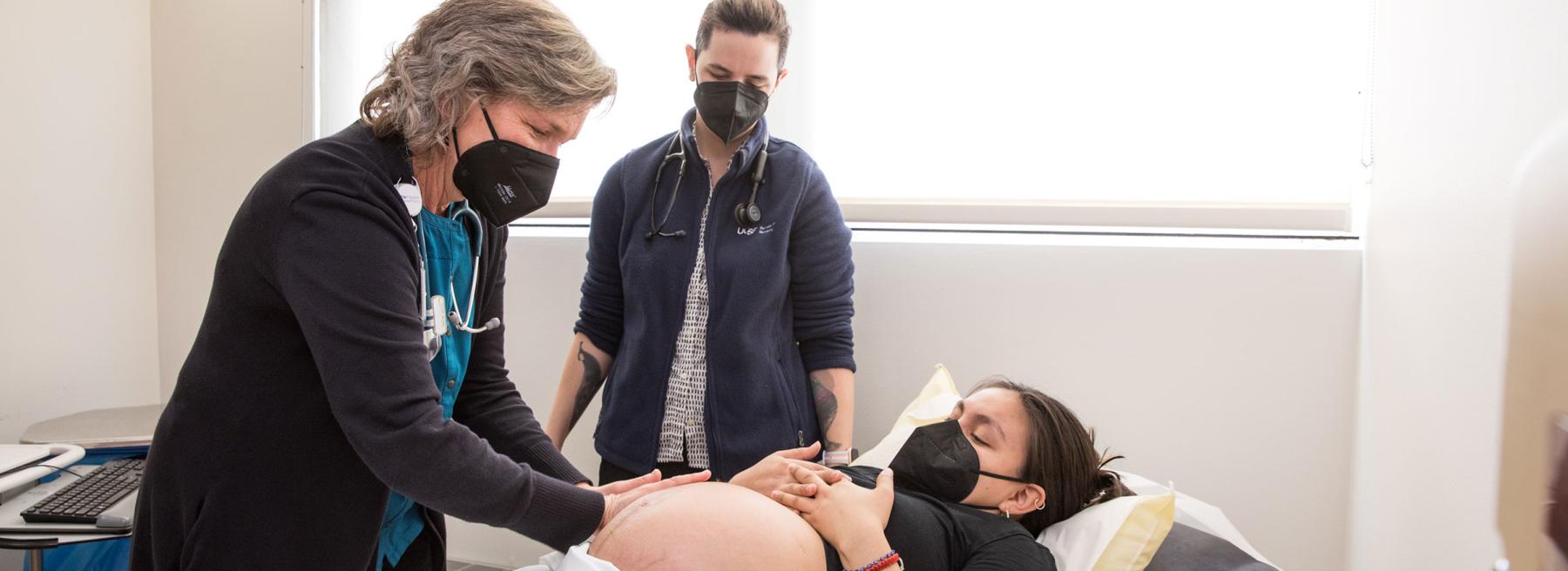Important Notice to Applicants
The Health Policy and Public Health Nursing specialty has paused admission for the 2025-2026 academic year in order to conduct curriculum review and development. To receive an announcement when the application cycle for the 2026-2027 academic year opens, please complete our interest form.
Overview
The UCSF specialty in Health Policy and Public Health (HPPH) for registered nurses provides foundations in policy leadership and planning and evaluating public health programs in a variety of settings. HPPH students will take the majority of their classes together, but their coursework will diverge into two separate tracks: Health Policy (HP) or Public Health (PH). This is not a clinical specialty and involves no individual direct patient care nor are students eligible for an NP or CNS license in California.
- Graduates from the Health Policy track will be prepared to: identify and critically analyze laws, regulations and policies that pertain to health and health care at the institutional, local, state and national levels; use in-depth knowledge of the history, structure, theory and process of health policymaking in the United States; and plan, implement and evaluate health policies. In addition, students will be able to identify the economic, ethical and social implications of health policy decisions for various affected groups and be prepared to creatively and effectively advocate for health policy change.
- Graduates from the Public Health track will gain a foundation for planning and evaluating community/public health programs; learning about community/public health concepts, health promotion, population health, population-level interventions, grant writing, health care systems, leadership and health policy; addressing health disparities of vulnerable and diverse populations; and practicing and consulting in diverse and multicultural settings.
Students in the HPPH specialty will understand the complex interactions between health and the social determinants of health to maintain or improve the health of diverse, vulnerable, and underserved populations and communities. We are committed, as a specialty and a community of students, staff and faculty, to working to advance racial, social and environmental justice and health equity.
Students should select their specialty track during the application process by indicating it in their goal statement, and no later than the end of winter quarter of year one. While in the program, a student can choose to continue in the specialty chosen or change based on their evolving interest. Students can also follow a dual track with additional course and residency requirements. Each track requires students to take eight units/240 residency hours appropriate to their track. The dual track requires taking both residencies for a total of 480 hours.
Curriculum
Current students can visit the Master of Science program's Collaborative Learning Environment site to access the curriculum (MyAccess credentials required).
For individuals applying for admission for fall 2024, the sample curriculum for the BSN Entry to DNP — Advanced Nursing Focus pathway can be viewed on our Curriculum webpage.
Frequently Asked Questions
Review the FAQs for this specialty for detailed information about selecting your specialty track, length of study, positions in which graduates will be prepared to work, and more.
Faculty
Susan Chapman, PhD, MPH, RN, professor - Specialty Coordinator: Health Policy Track
Kate Holbrook, MS, RN, assistant professor - Specialty Coordinator: Public Health Track
Stella Bialous, DrPH, RN, FAAN, professor
Carol Dawson-Rose, PhD, RN, FAAN, professor
Orlando Harris, PhD, MPH, FNP, associate professor
Ulrike Muench, PhD, RN, FAAN, associate professor
Van Park, PhD, MPH, professor
Catherine Waters, PhD, RN, FAAN, professor
Contact Us
Specialty Coordinators:
Susan Chapman, PhD, MPH, RN — Health Policy track
Kate Holbrook, MS, RN — Public Health track
Administrative Coordinator:
Brandee Woleslagle Blank
[email protected]
415-476-3047

